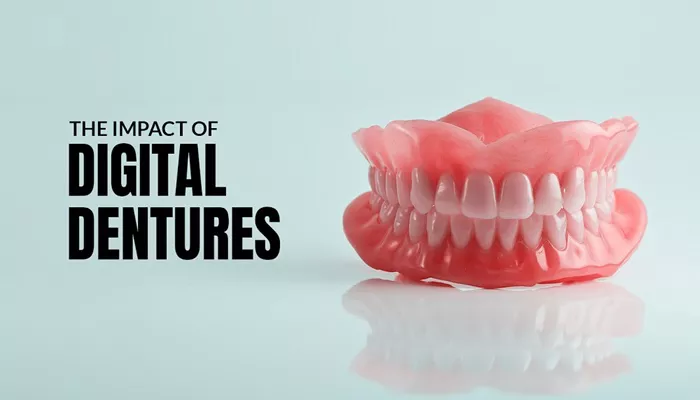For many individuals, losing teeth can significantly impact their quality of life. Dentures are a common solution for restoring function and aesthetics after tooth loss. However, many people wonder whether their health insurance, specifically Original Medicare, provides coverage for dentures. This article will explore the coverage options available for dentures under Original Medicare, discuss the differences between Medicare and other insurance plans, and provide guidance on what to do if you need dentures.
Understanding Original Medicare
Original Medicare consists of two parts: Part A and Part B.
1. Medicare Part A
Medicare Part A primarily covers inpatient hospital care. It includes services such as:
- Hospital stays
- Skilled nursing facility care
- Hospice care
- Some home health care
2. Medicare Part B
Medicare Part B covers outpatient services. This includes:
- Doctor visits
- Preventive services
- Laboratory tests
- Outpatient surgeries
While Medicare Part B covers many essential health services, it does not typically cover dental care, including dentures.
Does Original Medicare Cover Dentures?
The short answer is no; Original Medicare does not cover dentures. This includes both complete and partial dentures. Medicare does not provide coverage for most dental services, and this extends to the costs associated with getting dentures.
Why Doesn’t Medicare Cover Dentures?
Medicare was designed primarily to cover medical services and hospital care. Dental care has historically been excluded from Medicare coverage for several reasons:
Focus on Medical Needs: Medicare’s primary aim is to address health care needs rather than dental needs, which are often viewed as separate.
Preventive Nature of Dental Care: Many dental issues can be prevented with regular check-ups and good oral hygiene.
Medicare focuses more on treatments that are necessary for overall health rather than preventive dental care.
Alternatives for Denture Coverage
While Original Medicare does not cover dentures, there are alternative options for individuals seeking coverage for dental care, including dentures.
1. Medicare Advantage Plans
Medicare Advantage (Part C) plans are offered by private insurance companies and provide an alternative way to receive Medicare benefits. Many Medicare Advantage plans include dental coverage, which may cover:
- Routine dental exams
- Cleanings
- X-rays
- Dentures
It is important to review the specific benefits of each Medicare Advantage plan, as coverage can vary widely between plans.
If you are considering a Medicare Advantage plan, check whether it includes dental coverage and what types of dental services are covered.
2. Standalone Dental Insurance
Another option is to purchase a standalone dental insurance plan. These plans can provide coverage for a variety of dental services, including:
- Preventive care (cleanings and exams)
- Restorative care (fillings and crowns)
- Dentures (both complete and partial)
When shopping for a dental insurance plan, consider factors such as:
- Monthly premiums
- Coverage limits
- Exclusions and waiting periods
- Network of dentists
3. State Medicaid Programs
For individuals with limited income, state Medicaid programs may offer dental coverage, including dentures. Medicaid is a joint federal and state program that provides health coverage to eligible low-income individuals. Coverage for dental services varies by state, so it is essential to check the specific benefits available in your state.
4. Dental Schools and Clinics
Dental schools often provide services at reduced rates. Students, under the supervision of experienced faculty, can perform a variety of dental procedures, including the fitting and placement of dentures. This can be a cost-effective option for those without insurance coverage.
Costs Associated with Dentures
Understanding the costs associated with obtaining dentures is crucial for planning. The total cost can vary based on several factors, including:
Type of Dentures: Complete dentures typically cost more than partial dentures. The materials used can also affect the price.
Location: Prices for dental services can vary significantly based on geographical location.
Dentist’s Experience: More experienced dentists may charge higher fees for their services.
Average Costs of Dentures
While prices can vary, here are some average costs associated with dentures:
Complete Dentures: $1,000 to $3,000 per arch (upper or lower)
Partial Dentures: $500 to $1,500 per arch
Implant-Supported Dentures: $3,000 to $30,000, depending on the number of implants needed
It is essential to discuss costs with your dentist and inquire about payment plans or financing options if necessary.
What to Do If You Need Dentures
If you require dentures and are concerned about coverage, consider the following steps:
1. Consult Your Dentist
Schedule a consultation with your dentist to discuss your options. They can provide information on the types of dentures available, the costs involved, and potential financing options.
2. Explore Insurance Options
If you have Original Medicare, consider enrolling in a Medicare Advantage plan that includes dental coverage or purchasing a standalone dental insurance plan. Research different plans to find one that meets your needs.
3. Check State Medicaid Programs
If you have limited income, check to see if you qualify for Medicaid in your state. Medicaid may offer dental coverage that includes dentures.
4. Look for Dental Schools
If cost is a significant concern, consider seeking treatment at a dental school. Dental schools often provide services at reduced rates, making dental care more accessible.
Conclusion
In summary, Original Medicare does not cover dentures or most dental services. However, there are alternative options available for individuals seeking coverage for dentures, including Medicare Advantage plans, standalone dental insurance, and state Medicaid programs.
Related topics:

